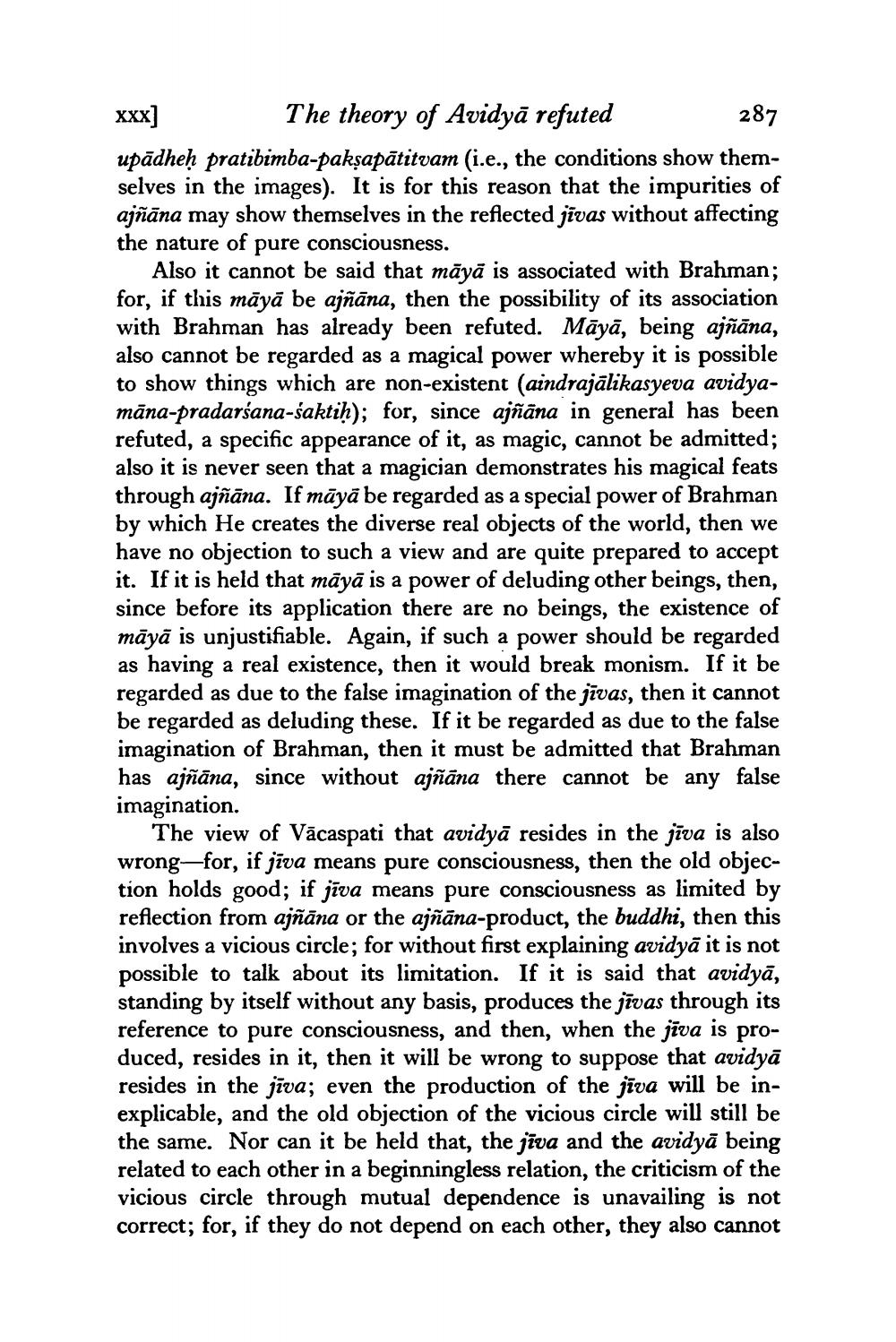________________
Xxx]
The theory of Avidyā refuted
287 upādheḥ pratibimba-pakşapātitvam (i.e., the conditions show themselves in the images). It is for this reason that the impurities of ajñāna may show themselves in the reflected jīvas without affecting the nature of pure consciousness.
Also it cannot be said that māyā is associated with Brahman; for, if this māyā be ajñāna, then the possibility of its association with Brahman has already been refuted. Māyā, being ajñāna, also cannot be regarded as a magical power whereby it is possible to show things which are non-existent (aindrajālikasyeva avidyamāna-pradarśana-saktih); for, since ajñāna in general has been refuted, a specific appearance of it, as magic, cannot be admitted; also it is never seen that a magician demonstrates his magical feats through ajñāna. If māyā be regarded as a special power of Brahman by which He creates the diverse real objects of the world, then we have no objection to such a view and are quite prepared to accept it. If it is held that māyā is a power of deluding other beings, then, since before its application there are no beings, the existence of māyā is unjustifiable. Again, if such a power should be regarded as having a real existence, then it would break monism. If it be regarded as due to the false imagination of the jīvas, then it cannot be regarded as deluding these. If it be regarded as due to the false imagination of Brahman, then it must be admitted that Brahman has ajñāna, since without ajñāna there cannot be any false imagination.
The view of Vācaspati that avidyā resides in the jīva is also wrong-for, if jīva means pure consciousness, then the old objection holds good; if jīva means pure consciousness as limited by reflection from ajñāna or the ajñāna-product, the buddhi, then this involves a vicious circle; for without first explaining avidyā it is not possible to talk about its limitation. If it is said that avidyā, standing by itself without any basis, produces the jīvas through its reference to pure consciousness, and then, when the jīva is produced, resides in it, then it will be wrong to suppose that avidyā resides in the jīva; even the production of the jīva will be inexplicable, and the old objection of the vicious circle will still be the same. Nor can it be held that, the jīva and the avidyā being related to each other in a beginningless relation, the criticism of the vicious circle through mutual dependence is unavailing is not correct; for, if they do not depend on each other, they also cannot




